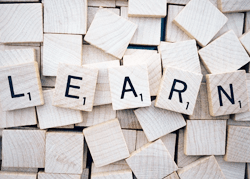If you manage a call center, then you know that exceptional customer care is the cornerstone of success in the answering service industry. But whether you’re a call center professional, a retail store associate, or a plumbing apprentice, basic customer service principles are applicable across the board. There’s no better time to refine or revamp your training approach than at the dawn of a new year, and we have just what you need to kick your customer care department up a notch in 2019.
In this 3-part series, we’ll help take the guess work out of answering service industry training, starting with a thorough review of the role that soft skills and empathy play in keeping clients happy. While phone skills, attention to detail, and a professional demeanor are second nature for some, for others, comprehensive soft skills training is an essential element in bringing out the best in your staff. And that’s what we’ve created in Soft Skills & Empathy 101.
The more equipped staff is to handle themselves appropriately in any situation, the more confident they’ll be on every call, and the better you’ll look to current and prospective clients. So, feel free to download and incorporate some or all of SAS’ soft skills handbook into your existing program, and stay tuned for part 2 – training techniques to fit every learning style.
Call Center Training Program: Soft Skills & Empathy
The first part of our call center training course will take you through the fundamentals of basic terminology that all CSRs should be familiar with, to what makes a great operator and some various skills and procedures that all CSRs should come to master. See below for the program outline and follow down the page for downloads emphasizing specific skills like de-escalation pointers and transitional phrases.
Program Materials: Download the Power Point Presentation to use during your training class.
#1. Basic Terminology
- Empathy
- Sympathy vs. Empathy
- Tone
- Active listening
- Transitional phrase
- Soft skills
#2. What Makes a Great Operator?
Just stick to the FACTS!
- F: Be Friendly and courteous
- A: Use Active Listening skills
- C: Stay Calm (even when the caller is not)
- T: Use a pleasant Tone of Voice
- S: Use a Smooth Transition to avoid dead air
#3. Using Your Experience as a Guide
- Think about your own experiences contacting customer service
- How did you feel?
- Put yourself in the caller’s shoes
#4. When Calls go Well, What is the End Result?
- Customers will leave the call without a doubt that they are in good hands
- Customers will feel valued and validated
- Businesses will be able to retain customers and build new relationships
- Businesses will see increased revenue from happy customers
- Operators will receive positive feedback
- Operators will inspire excellence among coworkers
#5. The Importance of Staying On Script
- Scripts are programmed a certain way for a reason and should be followed as best as possible
- It may be acceptable to go off script in some circumstances, like if you’re answering a question or providing reassurance to a caller.
- It’s okay to ad-lib some expressions and phrases such as: “Thank you”, “I’m here to help”, “I’ll make sure this gets to the right person”, etc.
- If you’re going off script, it’s important to keep things moving to reach the end goal, which is to get the message through.
#6. Soft Skills and In-Call Procedures
- Active listening for accurate message taking
- Placing the caller on hold
- Transferring the caller
- Fielding questions using the FAQs
- Accessing external calendars or websites
Ready for more? Continue to part 2 of our series where we explore 4 call center training techniques and best practices.
